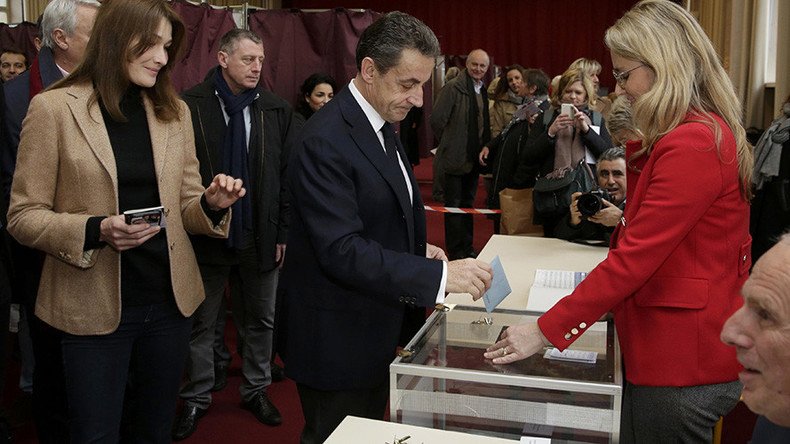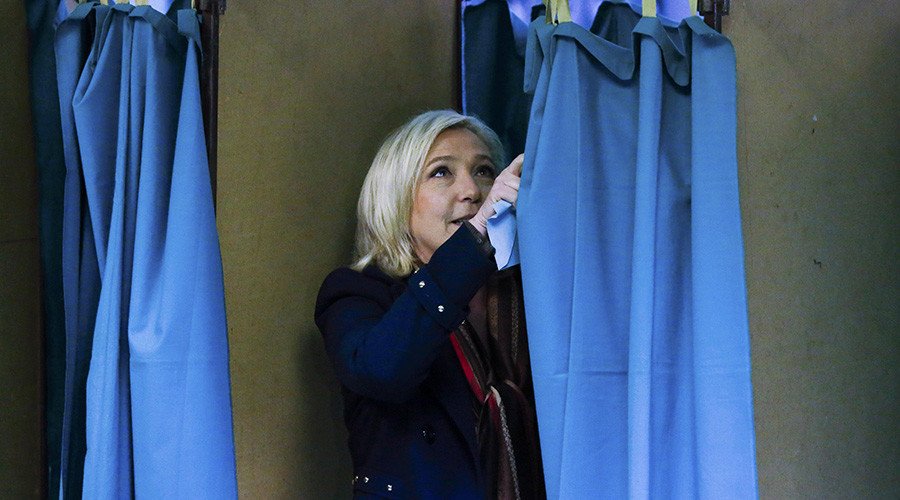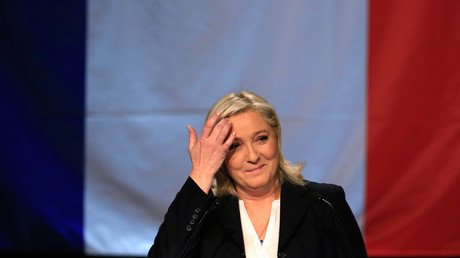‘No real winners in 2015 French elections’

It is not only the National Front who lost the election, but French voters as well, as most of them voted against instead of for something, political expert Thomas Guenole told RT. Very few voted for a political party, he added.
Marine Le Pen’s National Front failed Sunday to win any region in the second round of the local elections after she gained a majority in the first round. Conservatives took the lead by winning seven constituencies, followed by the Socialists who got five.
RT: Even though the National Front has lost out the Conservatives have gained ground with Sarkozy also taking a strong stance on immigration. Cleary there's been a shift to the right in France.
Thomas Guenole: Not really, in fact, what we can see is the National Front gained new voters, but you cannot consider that all of them are far-right voters strictly per se. For instance, some new voters for the National Front just want to make the political system explode. So it is not a vote for the National Front, it is a vote against all the others. You also have the National Front’s new voters, who in fact are voting in favor of economic protectionism, but they are not really that much fond of racism per se. So you have several layers of different kinds of National Front voters: you’ve got the racist ones; you’ve got almost far-right, but not that far-right; also you’ve got those who vote just against the system; and you’ve got those who vote in favor of economic protectionism.
RT: The public mood is in France shifting to the right, isn’t it?
TG: I am sorry, but I cannot stand for such an analysis, because especially at the first round of the regional elections what you can see is the Conservatives, the right-wing political party in France is at the same level as when we had regional elections, and they lost them because they were nationwide governing the country. In fact they had the same low vote at the first round as when they were holding national power like the left wing now. Basically the right wing has not a normal level of low votes...
It would mean that the right-wing party does not benefit from being in opposition. Normally speaking, when you are in opposition, and you’ve got intermediate midterm elections, and if you are the main opposition political party, you should have really high scores, and the right wing doesn’t have high scores, except where the left wing decided to quit...
RT: Do you believe that the left will be sitting tonight quite happy?
TG: We only have losers tonight. The National Front wanted to win regions. They won voters, but they didn’t win regions, and they had a wide coalition of voters against them, so their strategy to become a normal party is defeated. The right wing has very, very low votes, but they should have higher votes by being an opposition party. So basically it is a defeat for them. But the left-wing governing socialist party lost many regions and lost many voters, so they lost too. French voters lost as well, because most of us voted against something, but almost none of us voted for something.

Victory of sorts for Sarkozy
Yvan Blot, former member of the National Front and European Parliament said that Sunday’s regional elections in France is a real success for Sarkozy, as he gained five regions now instead of one.
RT: Why do you think the far-right party has not won a single region after its shock victory a week ago?
Yvan Blot: Well, I am not surprised, because the National Front has something like 30 percent of the voters in France, and with 30 percent of the voters without any friends, it is impossible to get some power.
I think firstly, it is a real victory for [Nicolas] Sarkozy and for his party, because he got five new regions. In the past he had only one - that was Alsace. So it is a real victory and it is necessary to stress on this point. It is not a good result for the government at all. Secondly, I would say that one citizen out of two didn’t vote at the first round. It is terrible for democracy and I think we have a big gap in France between the ruling elite, the political class and the people. We are not in a real democracy; we are in a sort of oligarchy like in all Western countries, with the exception of Switzerland.
John Laughland, director of studies at the Institute of Democracy and Cooperation in Paris: “The turnout is the key issue. It is the turnout that obviously defines the result. If people stay at home then the result effected one way or the other. What happened last Sunday was that a lot of people stayed at home, but some of those who stayed at home came out to vote yesterday. And in particular the opponents of the National Front came out to vote. The supporters were also more mobilized- the number of the votes that the National Front won was higher even than it had been on Sunday last week.”
People have the feeling that the government doesn’t hear what the people want. For that reason, Mr. Sarkozy said [that] it was necessary to hear the people. I think it is a real question about immigration, security, unemployment, tax. On all these issues the policy of the socialist government is not at all what the majority of the citizens want. It is for that reason that I am for direct democracy and referendums.
RT: Even though the far-right lost out, there was a shift to the right to the conservatives. What's behind that?
YB: This sort of shift is quite natural. Personally I was in the Gaullist movement, afterwards I was some years in the National Front, and now I am with Sarkozy. It is an example that there are a lot of shift between people…Especially in Paris where I noticed that people in the first round voted for National Front and in the second they voted for the Republicans.
LISTEN MORE:
The statements, views and opinions expressed in this column are solely those of the author and do not necessarily represent those of RT.













